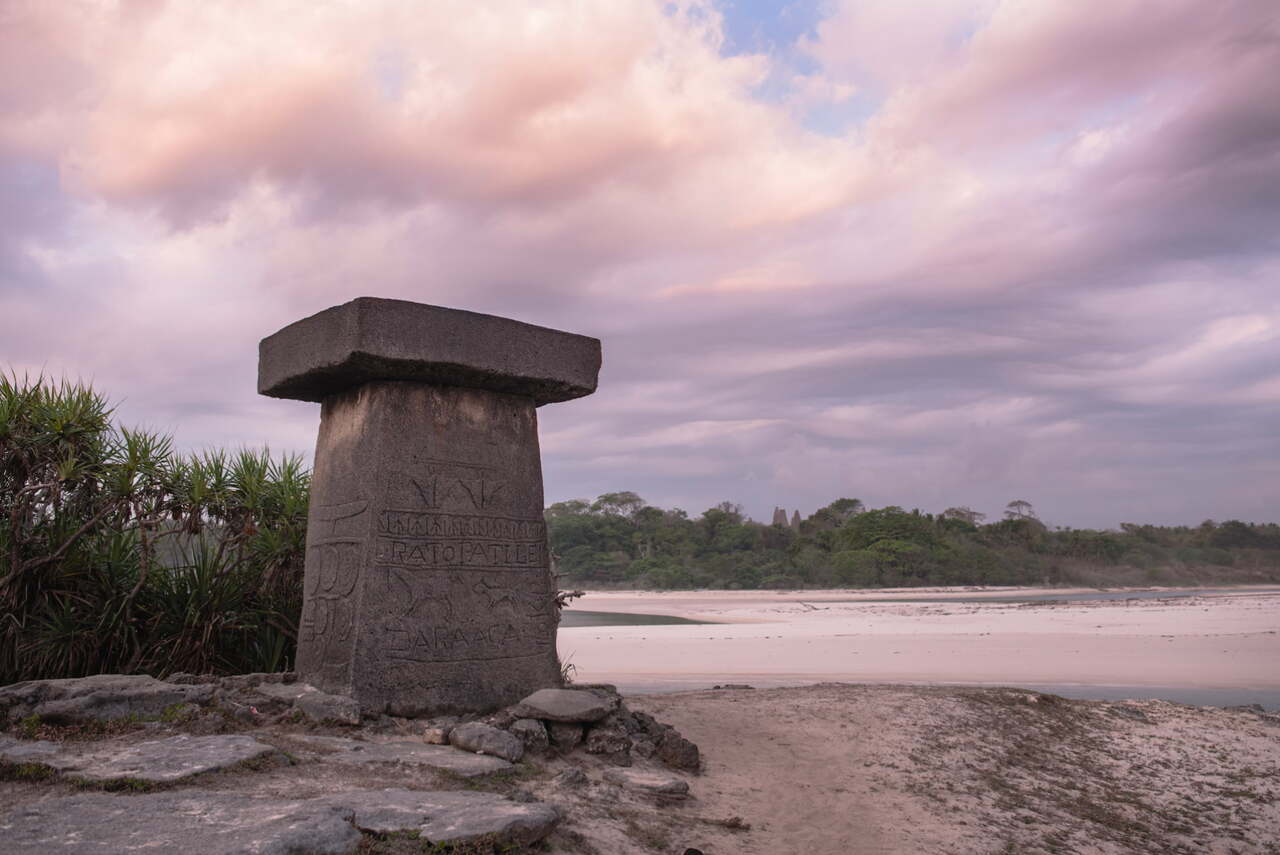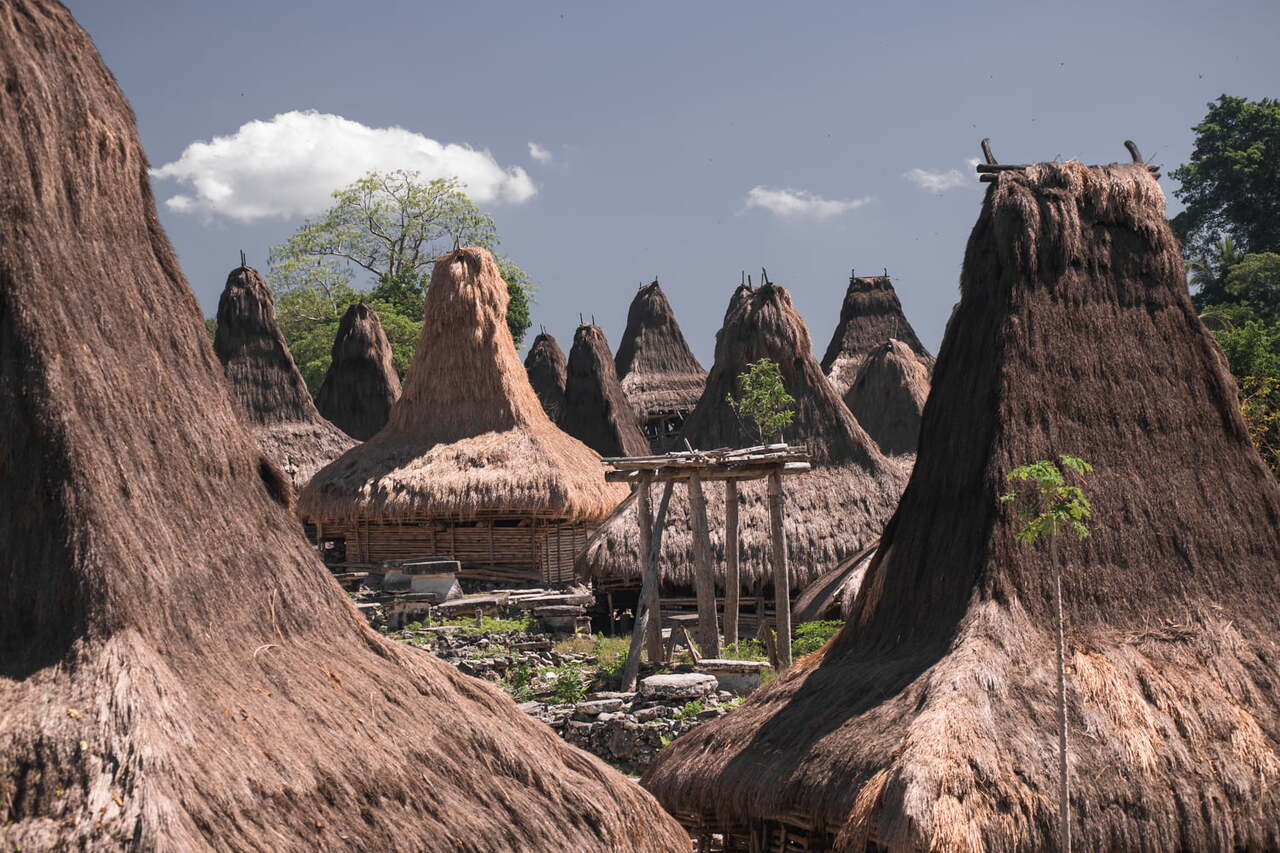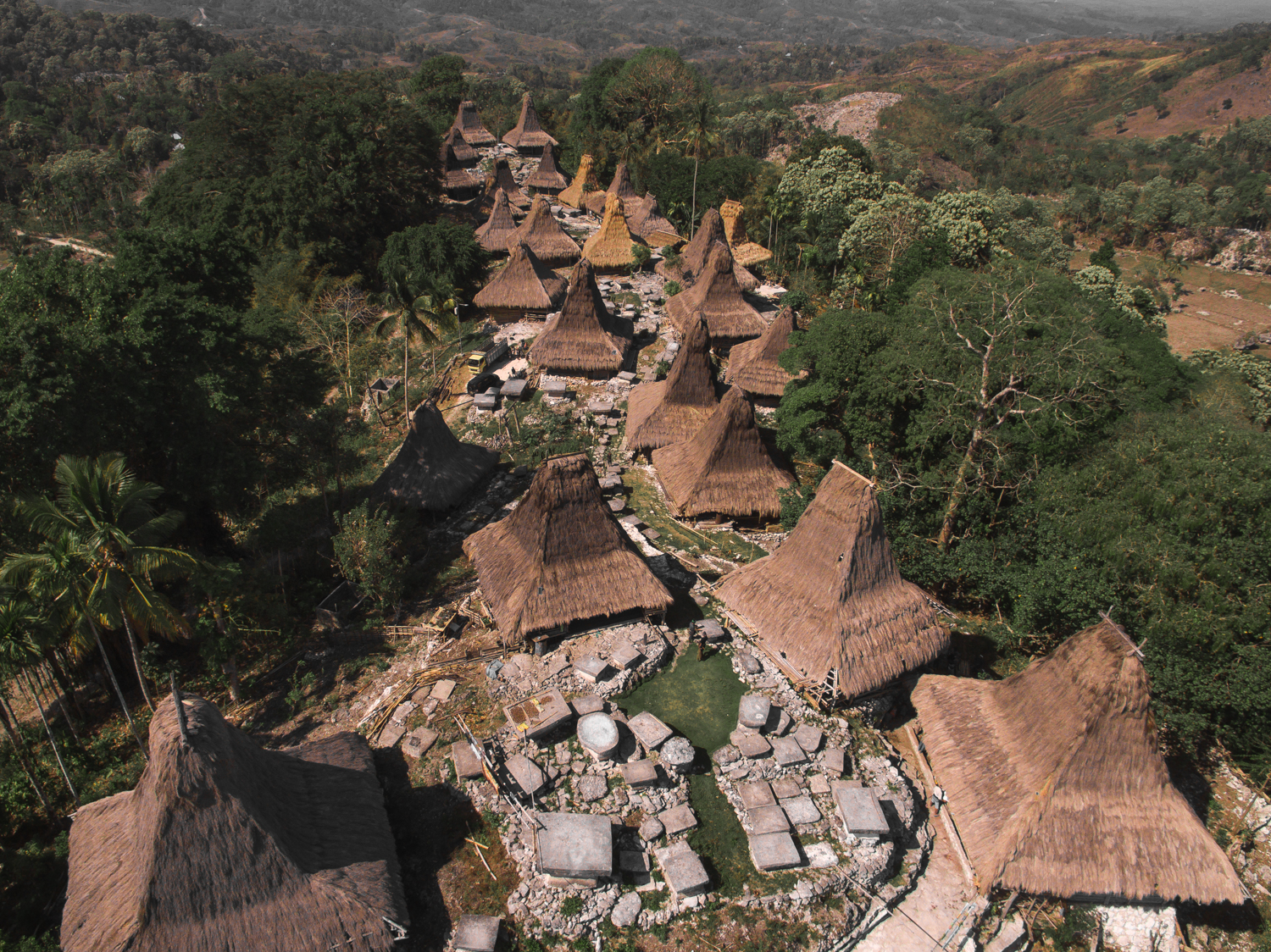Discover the funerary rituals in Sumba
June 25, 2021
Different in life, different in death. Shocking although it may seem, on Sumba Island, it is common practice for families to keep the remains of their dead relatives inside their house for years, or even decades, to come. Why, you ask? Because they are waiting until they can afford the appropriate send-off to the afterlife. That is just how costly, and how elaborate, Marapu funeral rites must be.
Once upon a time, when Kings died they were buried decked out in their finest gold jewelry alongside their still living slaves, so that the latter could continue to serve in the afterlife. Funerals could take months, and the family would need to accommodate thousands of guests and provide hundreds of pigs to feed them.
Today, while slaves are no longer ghoulishly buried with their masters, many of the traditions live on, and come at their own cost. For example, when a father dies his daughters are required to provide livestock such as buffaloes, horses, or cows for sacrifice – animals which run into thousands of dollars of cost. And in every case, the monolithic tomb – which is so iconic of the Sumba skyline – must be constructed. It comes at not only great financial expense, but also a cost of personal sacrifice and time. Marapu dictates that these tombstones must be made from one heavy, square stone, which functions as the tomb cover, and four smaller stones as pillars, which have all been sourced from the same quarry. Sizes vary, but bigger is better, especially for the noble families. Dragging the stones from the quarries takes hundreds of men who must all be fed by the deceased’s family members. And at least four rituals are needed to summon the magical, ancestral powers that will help the men with the task.
So while Sumbanese families are busy saving to fulfil these rites, the body, covered in traditional cloth, patiently waits. But locals joyfully shake off any concerns about living with the decomposing remains of a relative for perhaps over a decade or more. “There’s nothing unusual about having them in my house. I was close to them when they were still alive”: one might hear.
The funeral is just one of the Marapu customs which helps to explain why Sumba is among the poorest regions in Indonesia. Burials and weddings also call for the sacrifice of livestock. And the practice is widespread even among poor families who otherwise consume only corn rice and vegetables year-round. No wonder Indonesians sometimes call Marapu the most expensive religion in the world.

